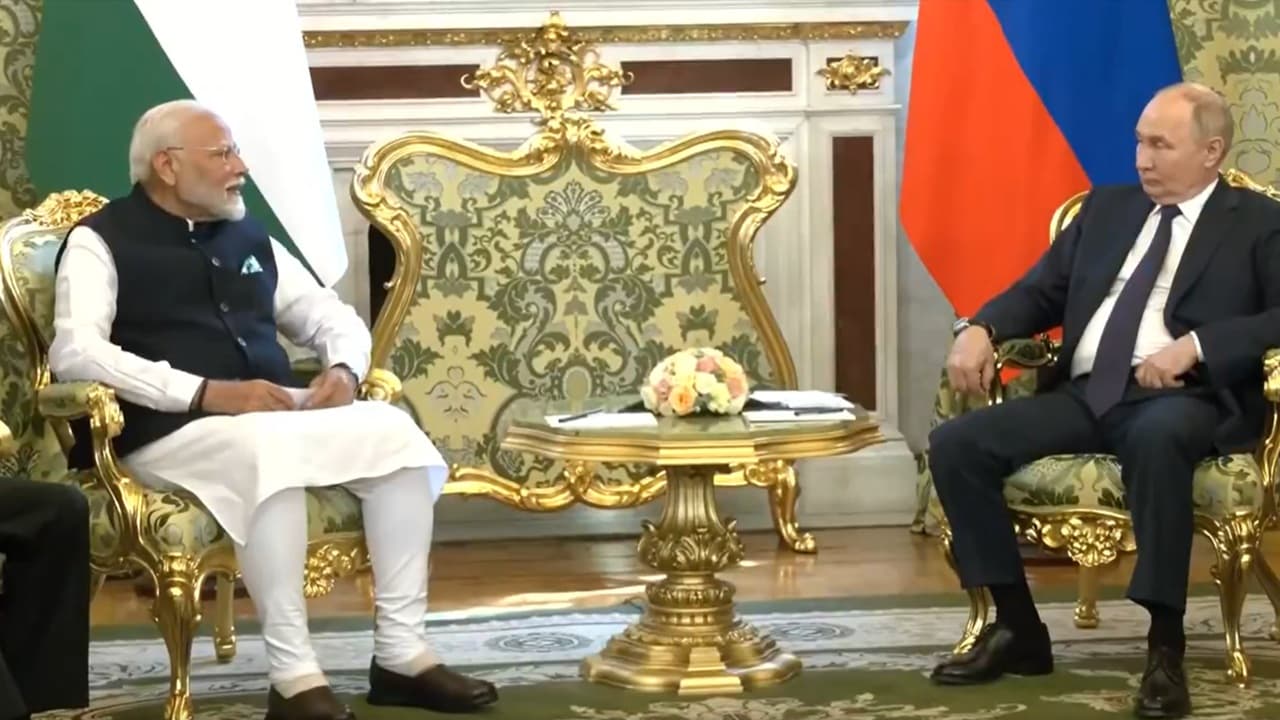MEA has rejected NATO chief Mark Rutte’s claim that Prime Minister Narendra Modi called Russian President Vladimir Putin following US tariffs on India. MEA spokesperson Randhir Jaiswal called the statement ‘factually incorrect’ and ‘careless’.
The Ministry of External Affairs (MEA) on Friday strongly refuted NATO Secretary-General Mark Rutte’s claim that Prime Minister Narendra Modi had recently called Russian President Vladimir Putin to discuss Ukraine in the aftermath of US tariffs on Indian goods and oil imports.
MEA spokesperson Randhir Jaiswal termed the remark ‘factually incorrect’ and ‘entirely baseless’. He said, ‘At no point has PM Modi spoken to President Putin in the manner suggested.”
Jaiswal further added, “We expect the leader of such a large international organisation to exercise greater responsibility. These are speculative and careless remarks.”
NATO chief’s ‘PM Modi Called Putin’ remark
Rutte, speaking on the sidelines of the UN General Assembly earlier this week, told CNN that Washington’s tariff measures against India had triggered ripple effects. He claimed that Modi reached out to Putin for clarity on Russia’s Ukraine strategy after being hit by higher US tariffs.
Rutte was quoted as saying: “Delhi is on the phone with Vladimir Putin… Narendra Modi is asking him, ‘I support you, but could you explain me your strategy because I have now been hit by these 50% tariffs by the United States.’”
He further argued that the tariffs placed “immediate pressure” on Russia since India, an important partner, would naturally demand explanations and assurances from Moscow.
What the tariffs are about
Last month, US President Donald Trump announced new reciprocal tariffs on Indian goods, with a 25 percent duty on several exports and an additional 25 percent penalty linked to India’s continued purchase of Russian oil. This means that some Indian products could face up to 50 percent tariffs when entering the US market.
The Trump administration has defended the decision by arguing that India’s energy imports from Russia indirectly aid Moscow’s war effort in Ukraine. India, however, has stressed that its energy purchases are driven by the need to secure affordable oil for its 1.4 billion citizens amid global volatility in supply.
Why Rutte’s claim faces scrutiny
According to Rutte, these tariffs created economic pressure on New Delhi, prompting India to reach out to Moscow for clarity on Ukraine. However, the MEA’s firm denial has cast doubt on his narrative.
India has historically followed a policy of strategic balance, engaging with Russia, the US, and other partners without appearing to act under external pressure. By dismissing Rutte’s statement, New Delhi underlined that its foreign policy decisions are made independently and not as a reaction to Western measures.
The matter has not drawn any official response from Moscow either.
